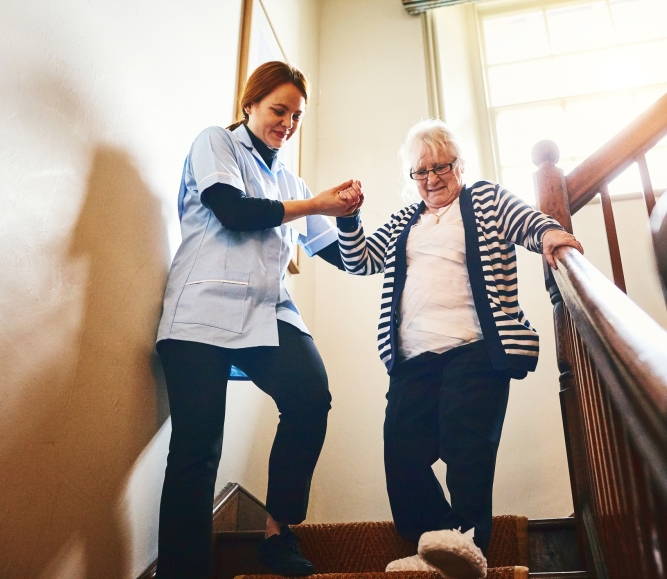HHS releases final rule to establish federal regulations for Adult Protective Services
Author

Julia Cortina
Upcoming Events
Related News

Key Takeaways
On May 7, the U.S. Department of Health and Human Services’ (HHS) Administration for Community Living (ACL) announced a final rule to establish the first federal regulations for Adult Protective Services (APS). APS programs prevent neglect, self-neglect, and fiduciary and physical abuse of older and disabled adults. While services can vary by jurisdiction, most states provide APS for adults 18 and older with a significant physical and/or mental impairment.
What’s in the final rule?
- Codifies and builds upon the National Voluntary Consensus Guides for State APS systems, making them the required “floor” standard and encourages states to exceed them.
- Requires response within 24 hours of screening to cases that are life-threatening or likely to cause irreparable harm or significant loss of income, assets, or resources.
- Requires APS Programs to provide at least two ways — at least one online — to report maltreatment or self-neglect 24 hours per day, seven days per week.
- Establishes definitions for key APS terms to improve information sharing, data collection and program standardization.
- Promotes coordination and collaboration with state Medicaid agencies, long-term care ombudsmen, tribal APS, local law enforcement and other partners.
What is the impact on counties?
- The final rule will take effect on June 7, 2024, but entities will have until June 7, 2028 to fully comply.
- APS programs are state supervised and county administered in Alabama, Colorado, Indiana, Minnesota, New Jersey, North Dakota, Oregon, South Carolina, Virginia. In California, New York, North Carolina, Ohio, Pennsylvania and Wisconsin, APS programs are county supervised and county administered.
- Much of the cost of implementation will be borne by state and local APS programs, because there is limited federal funding available to support the operation of APS programs. However, HHS made key changes to the final rule to reduce the burden of implementation, including eliminating a proposed requirement around minimum staff ratios and clarifying several definitions.
- Counties support full funding for APS programs as authorized in the Elder Justice Act to support implementation of the final rule.
Webinar
County Strategies Supporting Older Adults and Their Caregivers
Join NACo and the National Academy for State Health Policy (NASHP) to learn more about the new Action Guide for counties.

Related News

USDA and HHS release new dietary guidelines
On January 7, U.S. Department of Agriculture Secretary Brooke Rollins and U.S. Department of Health and Human Services Secretary Robert F. Kennedy, Jr. unveiled the new Dietary Guidelines for Americans, 2025–2030.

County Countdown – Dec. 15, 2025
Every other week, NACo's County Countdown reviews top federal policy advocacy items with an eye towards counties and the intergovernmental partnership.
